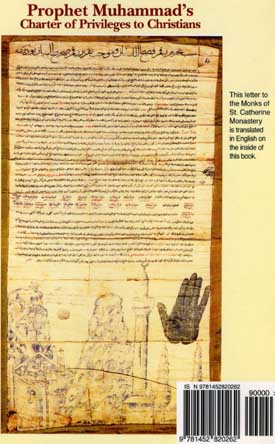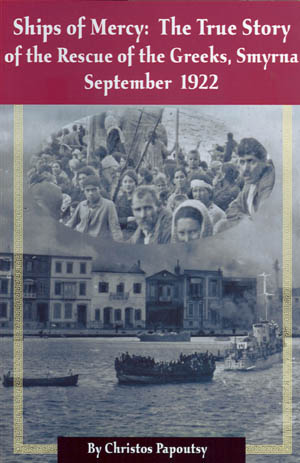 |
|||
|
The Prophet Muhammad Wrote in AD 628: "Christians |
|||
|
|
|||
|
|
||
| There is also a sentence at the bottom that states: “This charter of privileges has been honoured and faithfully applied by Muslims throughout the centuries in all lands they ruled,” though I cannot say I entirely agree with the statement. However, in fairness, one also has to admit that over the centuries the Muslims have not been well treated by Christians, either (consider the Crusades, the expulsion of the Moors from Spain and the War in Kossovo among others), so there is room for argument on both sides. What I do believe is that the attention of every Muslim country and every Imam preaching in mosques worldwide should be drawn to this letter from the Prophet Muhammad; and then discussions should take place between the leaders of all Christian Churches and all Muslim Imams as to how this covenant can be properly implemented, and what Christians can offer in return. If done by just and honourable representatives of the faiths concerned it might lead to a better, wider and fairer respect and understanding of the two religions. Ships of Mercy Ships of Mercy (the true story of the rescue of the Greeks in Smyrna, in September 1922) is an eye opening book that brings startling and fresh evidence to the fore, dispelling common myths and anecdotes about the evacuation of the refugees, and clearly documenting the real heroes in this tragedy. The name that stands out above all others is that of Asa Jennings, the Smyrna YMCA secretary and a former Methodist preacher; short and nondescript, but with the heart of a lion. After George Horton (US Consul General in Smyrna) asked him to look into rescue options, Jennings’ first act was to persuade the captain of an Italian ship to take 2000 refugees to Mytilene, but he knew that only one rescue ship was the tip of the iceberg: he had thousands of refugees to evacuate. However, the only ships available, locally, were the 20 transports at Mytilene that had evacuated the Greek Army; and their commander, General Frankos, was afraid to give permission in case the vessels were seized by the Turks and used to attack nearby Greek islands. |
|||
Maintaining the fiction he was in charge of the American Relief Force, Jennings then went over Frankos’ head and cabled the Greek government direct, requesting that all Greek ships in the area be put at his disposal. Athens demurred, saying this would require the prime minister to get cabinet approval which was not possible at that moment as it was not in session. Jennings then threatened to send the following un-encoded cable that could be freely read by anyone with a radio: “the Turkish authorities had given permission for Greek ships to evacuate refugees from Smyrna, that the American Navy had guaranteed protection for these ships, that I [he, Jennings] had assumed responsibility for directing them to Greek soil , that all we lacked were ships and that the Greek Government would not permit Greek ships to save Greek and Armenian refugees awaiting certain death or worse!” Within 2 hours Jennings received a wire stating that the Greek government placed all ships in the Aegean at his disposal; in effect creating him a temporary admiral; and the 20 ships sailed for Smyrna 6 hours later, flying US flags and escorted by the US destroyer Lawrence. Other ships followed later. |
|
||
|
|
|||
|
(Posting date 03 March 2011, with permission author and FELT News.) HCS encourages readers to view other articles and releases in our permanent, extensive archives at the URL http://www.helleniccomserve.com/contents.html. |
|||
|
|||
|
2000 © Hellenic Communication Service, L.L.C. All Rights Reserved.
http://www.HellenicComServe.com |
|||



